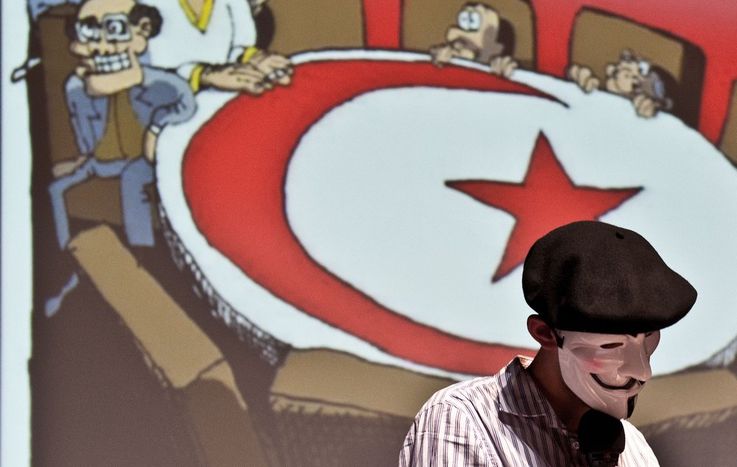
Tunisian caricaturist _Z_: 'This is not what we had the revolution for' (10 images)
Published on
Translation by:
Cafebabel ENG (NS)The blogger _Z_, known for his 'fierce drawings' (Rue89 editor Pierre Haski) during the Arab uprising got into the world of caricature by chance. Yet how to ignore the dictatorship in your homeland and contribute to that universe with a critical eye, from another country? More than a year after a young Tunisian sacrificed himself to launch this democratic movement, _Z_ starts his story at the beginning in 2007
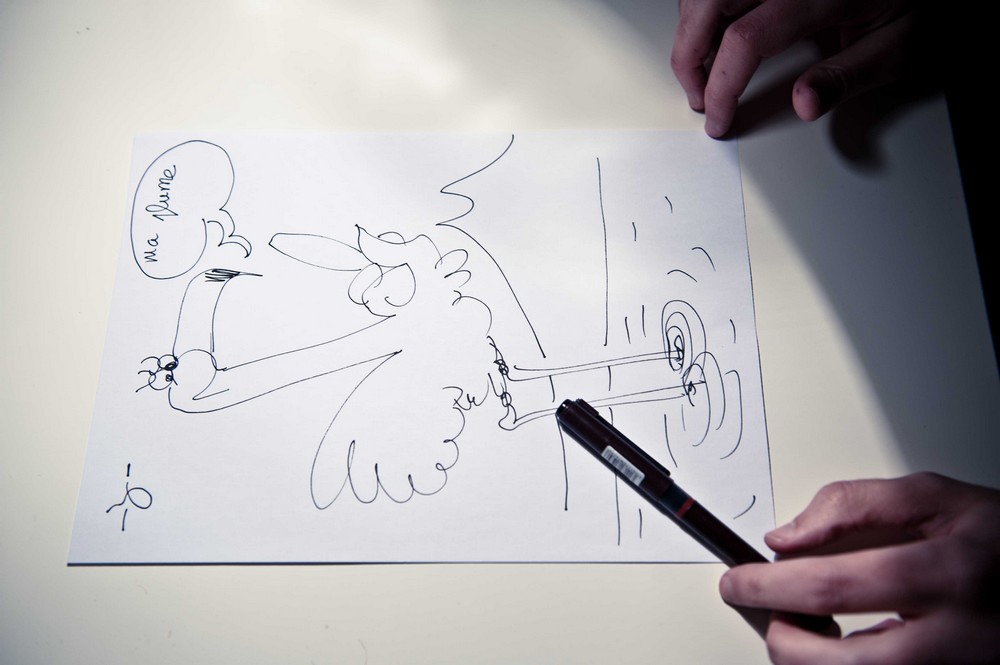
'I've been drawing since I was a child. I started 'officially' drawing caricatures in 2007, in Paris. I was working in urbanism at the time, in an era where enormous buildings were being constructed in Tunis. My 'stick men' in these draw-ups used to be flamingos, and that's when it first came to me. These flamingos (pictured) were stranded on their islands, symbolising the oppressed citizen who was completely excluded from the debate. I chose to call my blog DebaTunisie ('Debate Tunisia'). The deeper I got into the issue, the more I asked myself why people stayed out of politics' (Image: © Davide Weber)
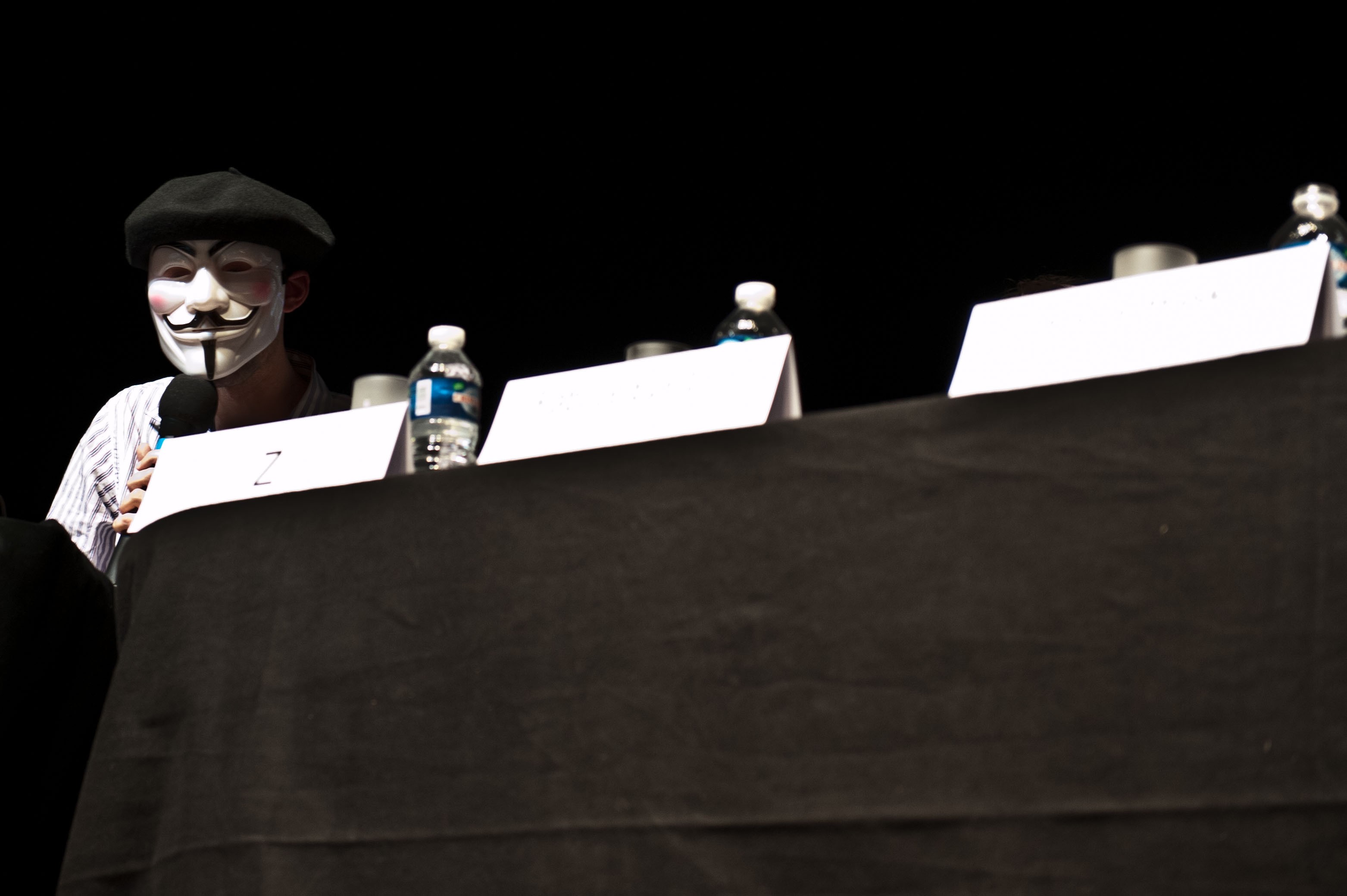
'The nickname _Z_ came about by coincidence. Whilst was working on urbanism projects I was quite far from feeling like I was some kind of 'Zorro of Tunisia' - I would have been more inclined to put an 'X' or a 'Y'. My first caricature of the flamingos ended up being a huge viral hit on the internet' (Pictured, '_Z_ at an 'Arab uprising' debate organised on 13 February 2012 at the Tarmac theatre, Paris. Image: © Davide Weber)
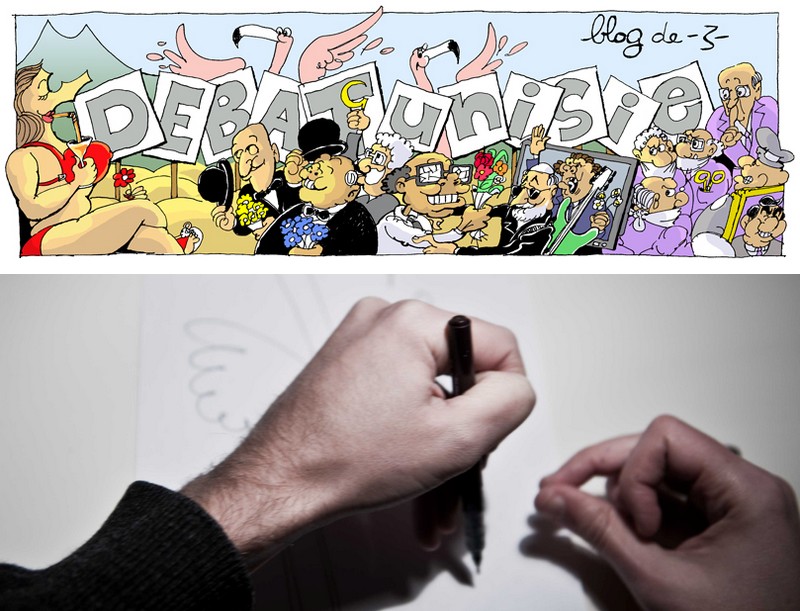
'There were no other caricaturists in Tunisia, so I took advantage of the gap in the market, as it were. Anything I did ended up getting being an internet hit. Everyday I produced a caricature. The flamingos that you see in my pictures always stand near a sort of horned mountain (to the top left hand corner of the picture, above). It's a mountain which dominates the skyline of Tunis and is like the soul of the city. The lilac colours represent the members of the party (top right hand corner), as it's the colour of the regime. The 'Ben Simpsons' are the incarnation of the bourgeous bling bling. Finally, the saints are the ones who are protected by the former dictator Ben Ali and the other members of the reigning family. They pillage the wealth of the country and dispossess the people' (Image: © Davide Weber)
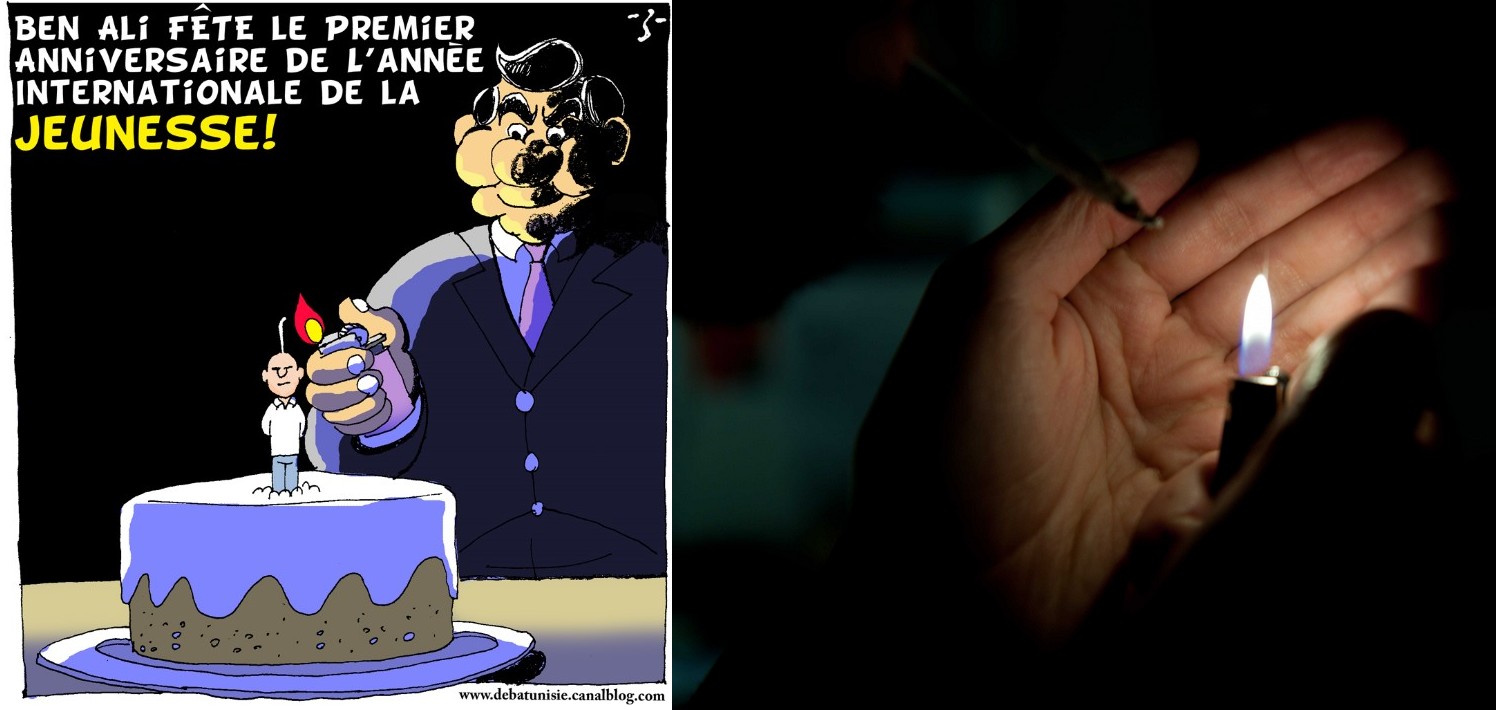
'My blog has been censored since 2008. You could only access it in Tunisia via a proxy. But even at that time you could see my images on facebook. '404' symbolises censorship in my images. WikiLeaks was a crucible in which we could prepare our ground - they were releasing secret American cables on the internet at the time. The evening that Ben Ali announced a lift on the online censorship ban, promising freedom of expression online, was the same evening that the real 'Ben Simpsons' decided to call for his resignation outside the interior ministry. When the posthumously awarded Sakharov prize laureate Mohamed Bouazizi sacrificed himself in December 2010, that's when all of these people were completely ready for change' (Pictured: left, a satirical image depicting Ben Ali himself setting fire to Bouazizi: 'Ben Ali celebrates the first anniversary of international youth year'; right, mourners remember the young martyr. Image: © Davide Weber)
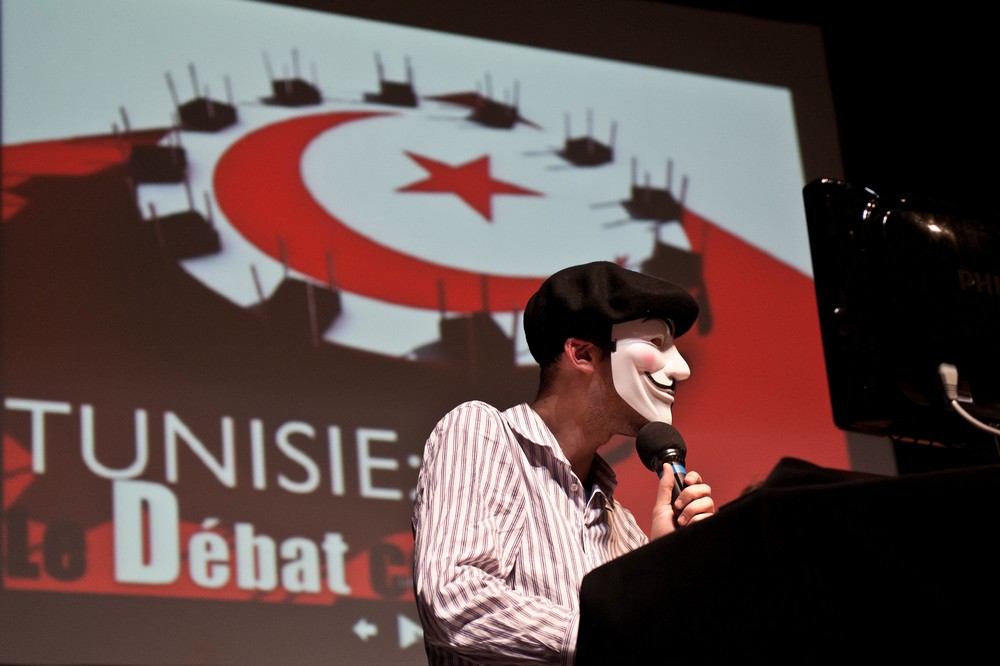
'It's not true that I am in political exile. I am not. Yes, I am a cyber-dissident. I left Tunisia to study abroad, like many other young Tunisians who came to France. It was not a move against Ben Ali. But seeing as I had already been censored when the only thing I had done 'wrong' was to run an urbanism blog, I started to think that something was definitely up. I declared war on the regime. Drawing caricatures was just a way of doing it just because I knew how to draw - if I knew how to sing, I would have sung' (Image: © Davide Weber)
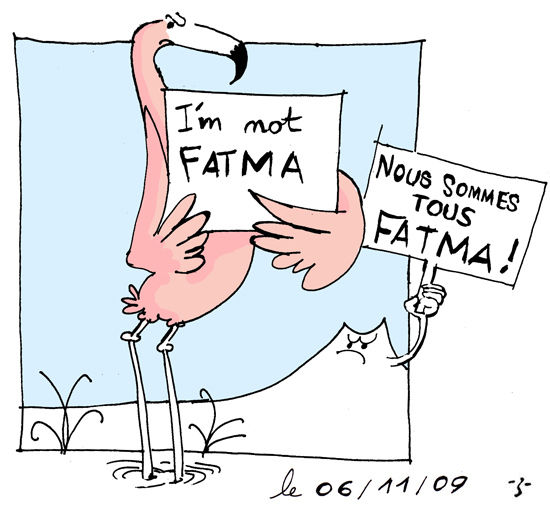
'The first time I really felt scared was when the Tunisian blogger Fatma Riahi was arrested in November 2009. The slogan 'I am Fatma' spread all over the internet. She wasn't anonymous like I am - she was a bit of a 'kamikaze' - so they came looking for her. She was able to warn me that if I didn't have news of her in two days, that I should launch a search. Fatma was actually accused of being _Z_. I was able to publish the drawing (pictured) which led to her eventual liberation' ('I'm not Fatma', says the flamingo - 'We are all Fatma!' says an indignant Tunis, symbolised by the mountain. Image: © DebaTunisie)
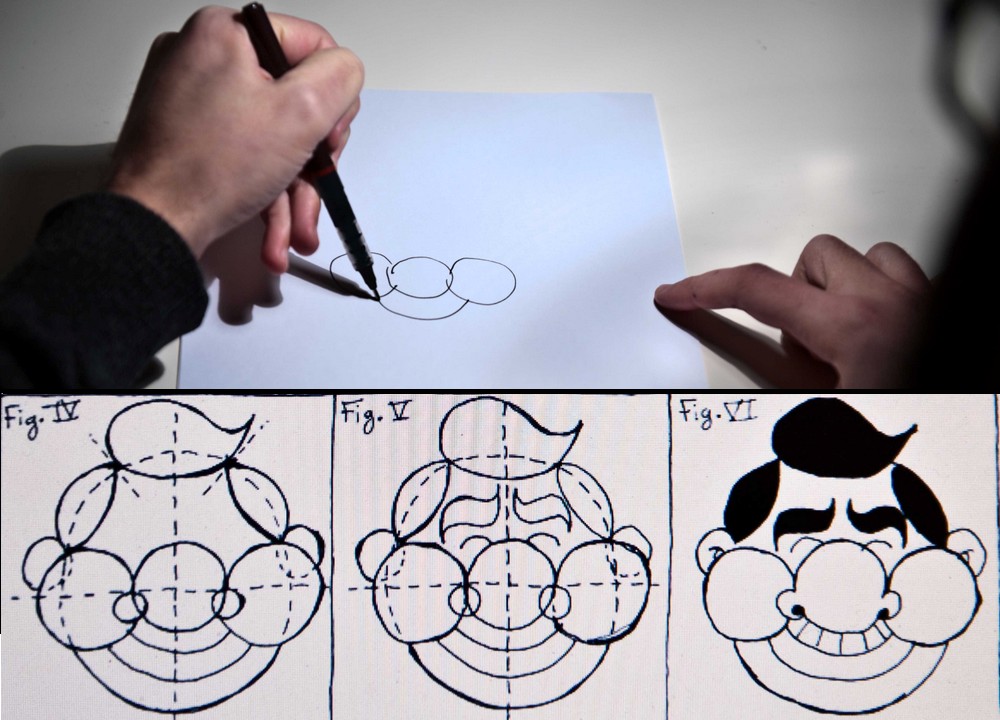
'It's not sane to question the legitimacy of elections. I don't feel like demonising the islamists - it is tantamount to saying that Ben Ali was right! We don't have anything to reproach them for. They are just people who use religion to buy the weakest voices. They use all the slogans of the revolution in every which way they want. The Ennahda islamists confirmed that they wouldn't touch religious laws but there are groups who gravitate around others - take the salafists, for example - who are more dangerous. I believe in democracy. I want the islamists to stay in power but I also want to be able to trade insults about god with them...' (Image: © Davide Weber)
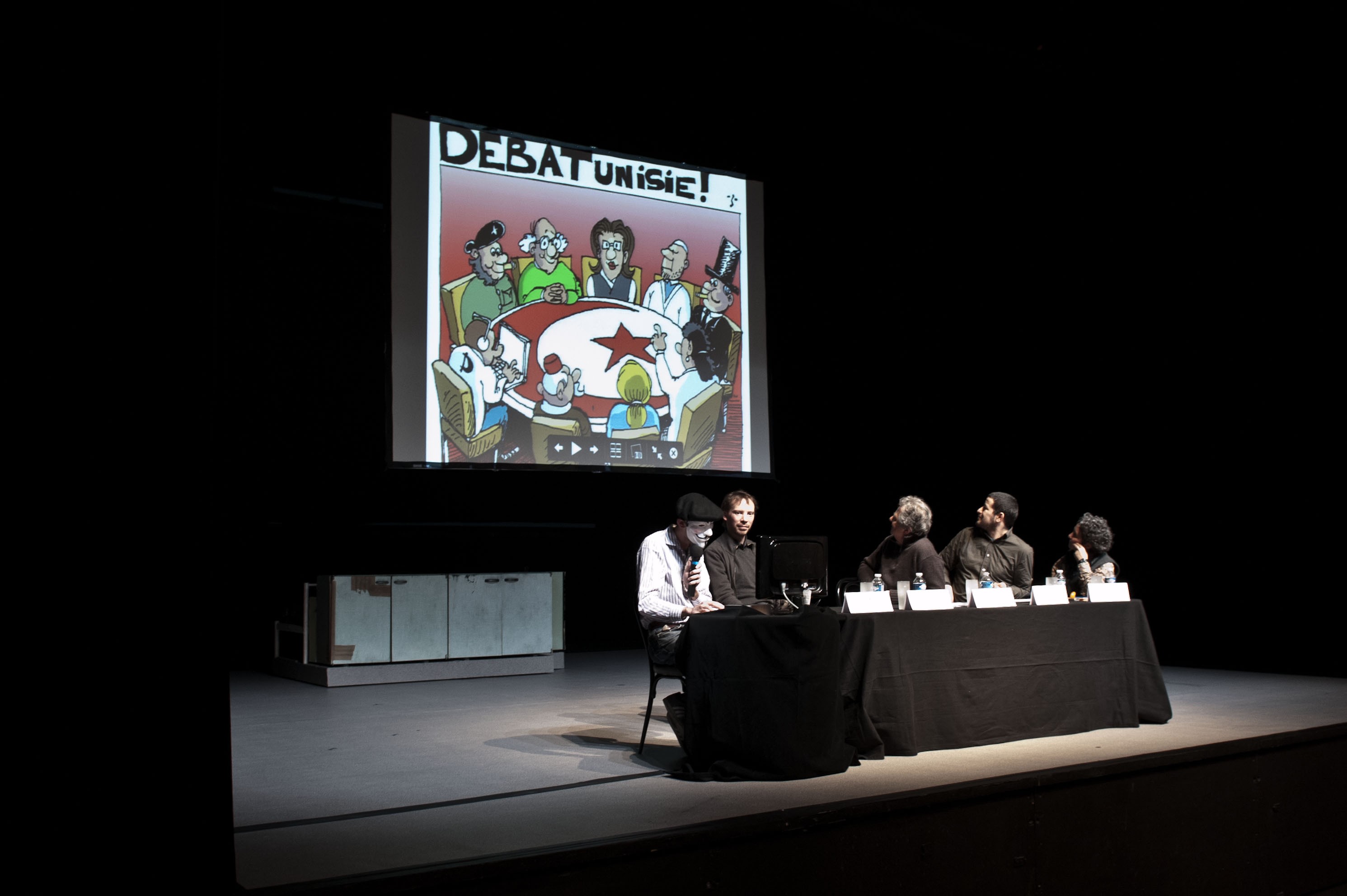
'The western media coverage of the last year and so of Tunisia has been completely crappy. The real problem is not the islamists. If we want to talk seriously, we should talk about unemployment and the distribution of wealth. Every time we get on to islamist territory, we get distracted. Unfortunately people only remember my caricatures for their 'islamist' aspect, but it's not my only theme - let's say it brings me more clicks. Religion is just one of the consequences of social injustice and globalisation. Capitalism created completely abandoned generations where religion was just a simple reponse to their distress. The west wants this part of the world to be under control. So it's better to justify dictatorship and an archaic system which prospers in the name of an islamist threat, rather than underline the poverty problem we have, for example' ('Arab uprising' debate organised on 13 February 2012 at the Tarmac theatre, Paris. Image: © Davide Weber)
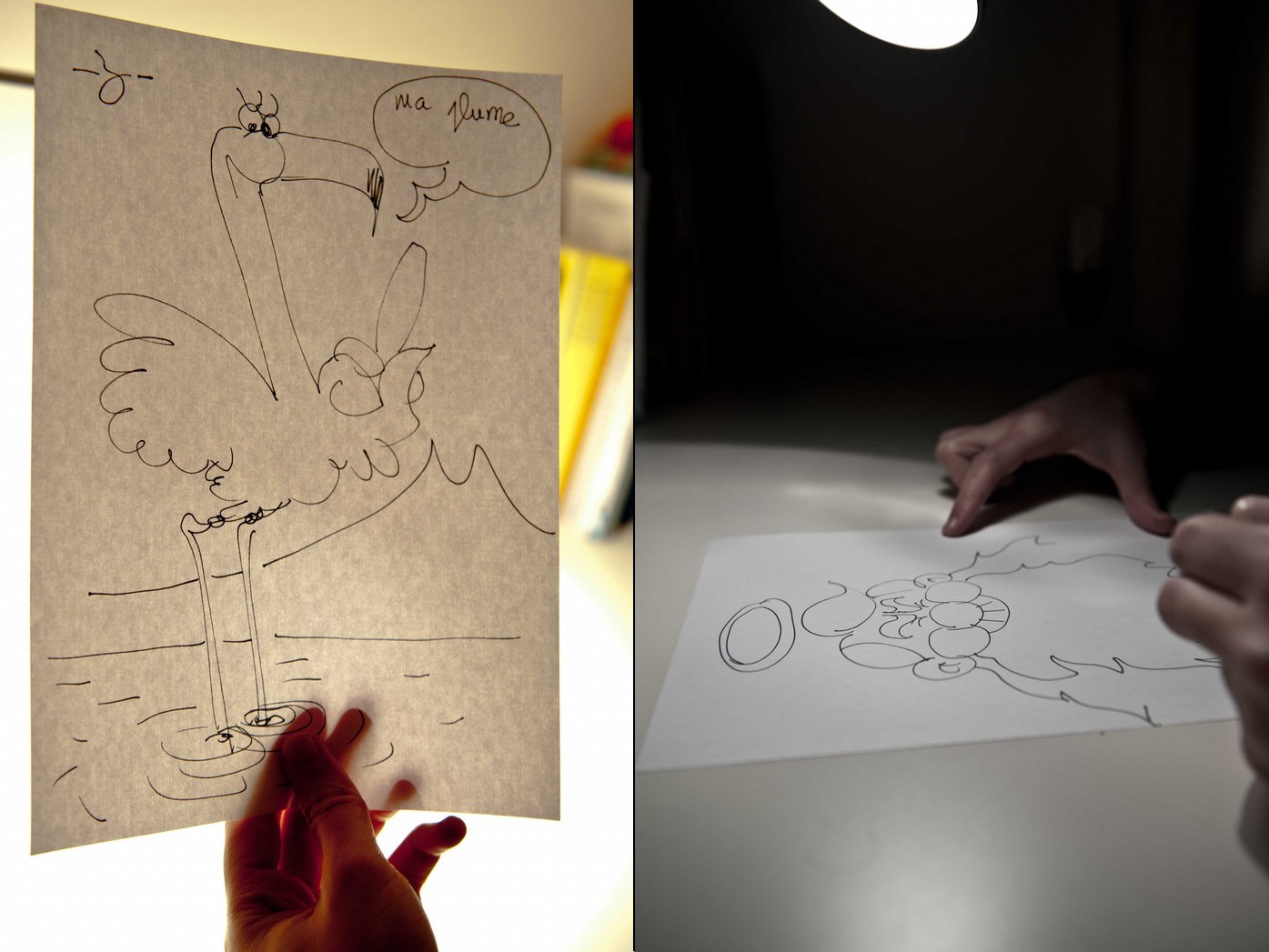
'I have received death threats because now I've started to attack the islamists. A new dictatorship is settling into its role. For example, there are about 14 Tunisian lawyers who have nothing better to do than complain about the director of the 'blasphemous' television channel which screened Persepolis in October 2011. Everything always kicks off just like that. I have started to work on my new neologism, Zaballah. Ben Ali used to be called Zaba, an acronym of his full name (Zine El Abidine Ben Ali), and to that I added 'Allah'. We have to start demystifying god. Some very dangerous movements are being born - this is not what we had the revolution for'' (Image: © Davide Weber)
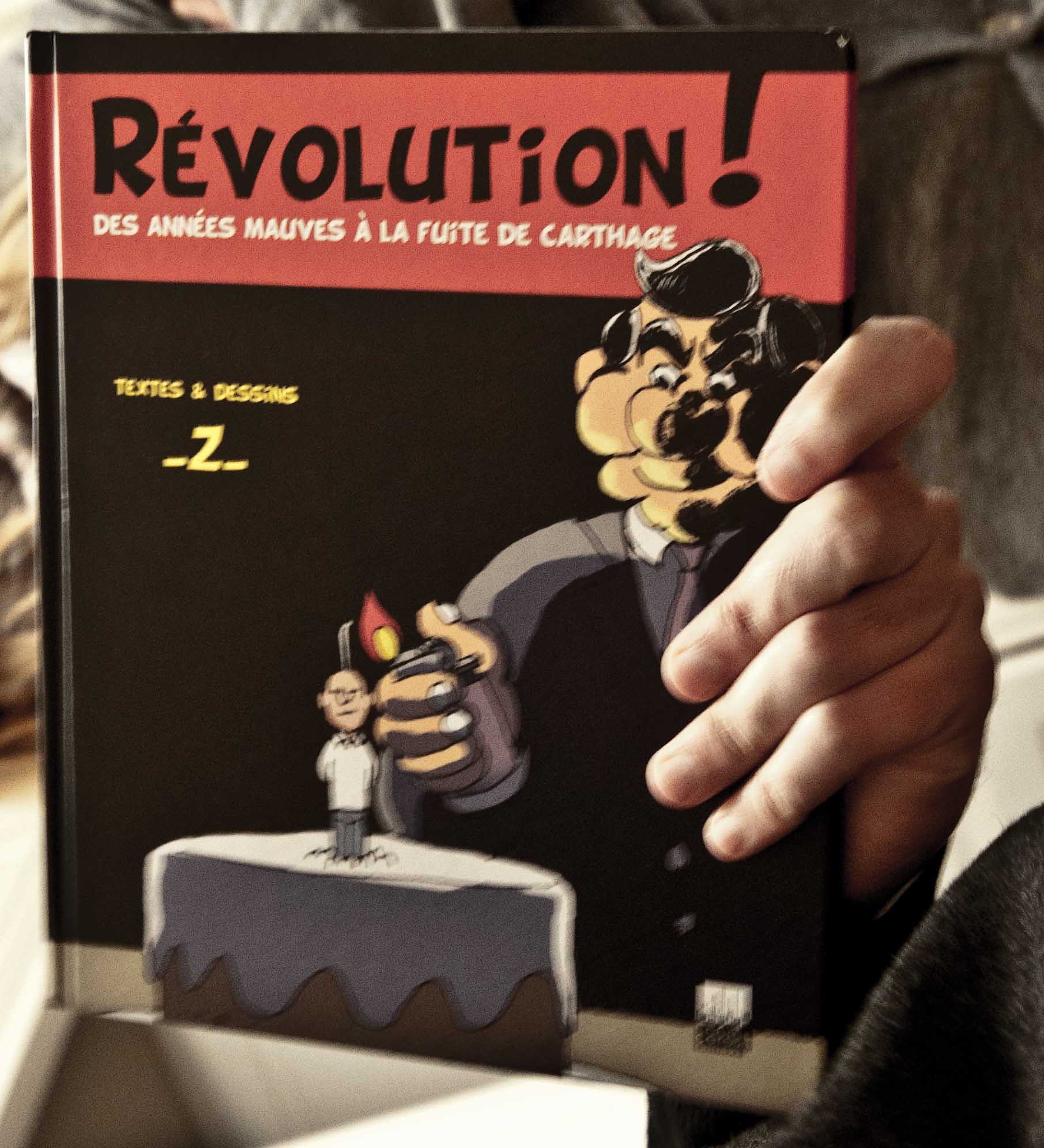
_Z_'s book 'Revolution! The Lilac Years after the Flight of Carthage' ('Révolution ! Des années mauves à la fuite de Carthage') is now out (Image: © Davide Weber)
Translated from Le cyber tunisien -Z- : « On n’a pas fait la révolution pour ça »



